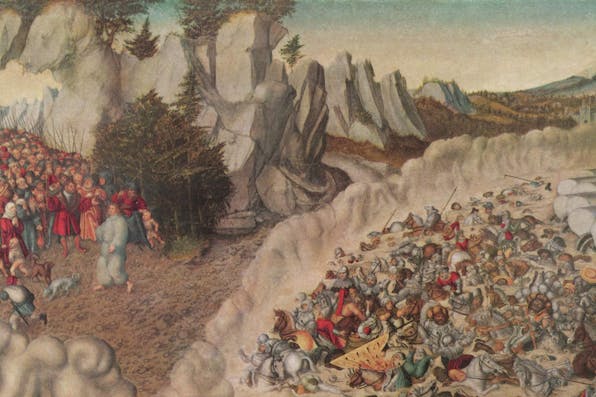
March 16, 2015
Biblical Criticism Hasn’t Negated the Exodus
The extent to which biblical criticism challenges believers has been vastly exaggerated; there is no reason to doubt the core of the Bible’s presentation of Israel's history.
In “Was There an Exodus?,” Joshua Berman renders a great service: he shows that many pronouncements concerning the non-historicity of biblical narratives are animated by a reflexive hyper-skepticism. This attitude shows up not only among journalists (who have an understandable interest in stirring up controversy) but also among occasional members of the clergy and, most disappointingly, among academic scholars who are supposed to adjudicate historical evidence consistently and relatively dispassionately. In some academic writing on the ancient Near East, as Berman writes, one detects a double standard at work: biblical sources that make historical claims are regarded as untrue unless backed by airtight confirmation from archaeology, while non-biblical sources, even in the absence of archaeological authentication, are taken as containing a good deal of factual information.
This tendency by otherwise well-trained scholars also occurs on the other end—that is, the believing end—of the spectrum. A relevant instance is James Hoffmeier’s superb study, Israel in Egypt: The Evidence for the Authenticity of the Exodus Tradition (Oxford, 1997). Masterfully weaving together archaeological, linguistic, and historical data, Hoffmeier devastatingly rebuts scholars who insist that the exodus narrative must be entirely fictional. But his rebuttal fails to demonstrate the claim he goes on to make, namely, that the biblical account is accurate not only in its broad sweep but even in its particulars.
For instance, in following the Pentateuch’s stipulation that the exodus preceded the beginning of the conquest of the land by 40 years, Hoffmeier runs up against severe difficulties in the dating of both events. Had he conceded that historical texts in the Bible invoke numbers in typological and symbolic ways that differ from the way modern historians use numbers, his job would have been easier—and easier still had he acknowledged that, for narrative purposes, ancient historians sometimes boiled down complex processes to what they regarded as their essentials. In this light, the possibility emerges that both the exodus and the conquest may have been sequences of related events that stretched out over a century or more, rather than episodes that took place, as the Bible has it, in a single night or over a single generation. Hoffmeier asks whether the biblical account as it stands is accurate. A more productive question would be whether and how the narratives reflect real events.



